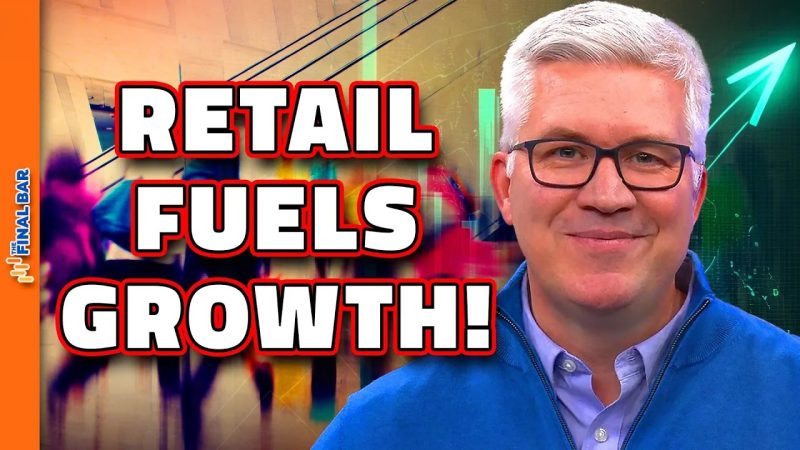In recent times, the global economy has been facing a challenging period marked by rising inflation fears. This has been an issue of concern for policymakers, economists, and the general population alike. The recent spike in inflation has led to widespread uncertainty and volatility in financial markets worldwide. Inflationary pressures have a significant impact on consumer purchasing power, business operations, and overall economic growth.
One of the key drivers of inflation is the strong retail sales that have been fueling economic growth. Retail sales are a critical indicator of consumer spending, which accounts for a significant portion of economic activity. When consumers increase their spending, it can lead to a rise in demand for goods and services, putting upward pressure on prices. This surge in demand can be attributed to various factors, including improving economic conditions, increased consumer confidence, and government stimulus measures.
The retail sector plays a crucial role in driving economic growth, as it encompasses a wide range of businesses that cater to consumer needs. Strong retail sales indicate healthy consumer demand, which, in turn, stimulates production and job creation. However, when demand outstrips supply, it can lead to shortages and price hikes, contributing to inflationary pressures.
The current environment of heightened inflation fears and strong retail sales underscores the delicate balance that policymakers must strike. They must navigate between supporting economic growth and managing price stability effectively. Central banks play a crucial role in this regard by controlling interest rates and implementing monetary policies to curb inflation.
Inflation fears can have far-reaching implications for businesses and consumers. Businesses may face increased costs for raw materials, transportation, and labor, which can erode profit margins. Consumers, on the other hand, may experience a decrease in purchasing power as prices rise, leading to a decline in their standard of living.
To mitigate the impact of inflation, businesses and consumers can take several steps. Businesses can optimize their supply chains, negotiate better terms with suppliers, and consider passing on cost increases to customers through price adjustments. Consumers can practice prudent spending habits, look for discounts and deals, and seek out alternative products or services that offer better value.
In conclusion, the intersection of inflation fears and strong retail sales presents both challenges and opportunities for economies around the world. It is essential for policymakers, businesses, and consumers to remain vigilant and adapt to changing market conditions. By fostering a stable economic environment and promoting sustainable growth, countries can navigate through these uncertain times and emerge stronger in the long run.




























